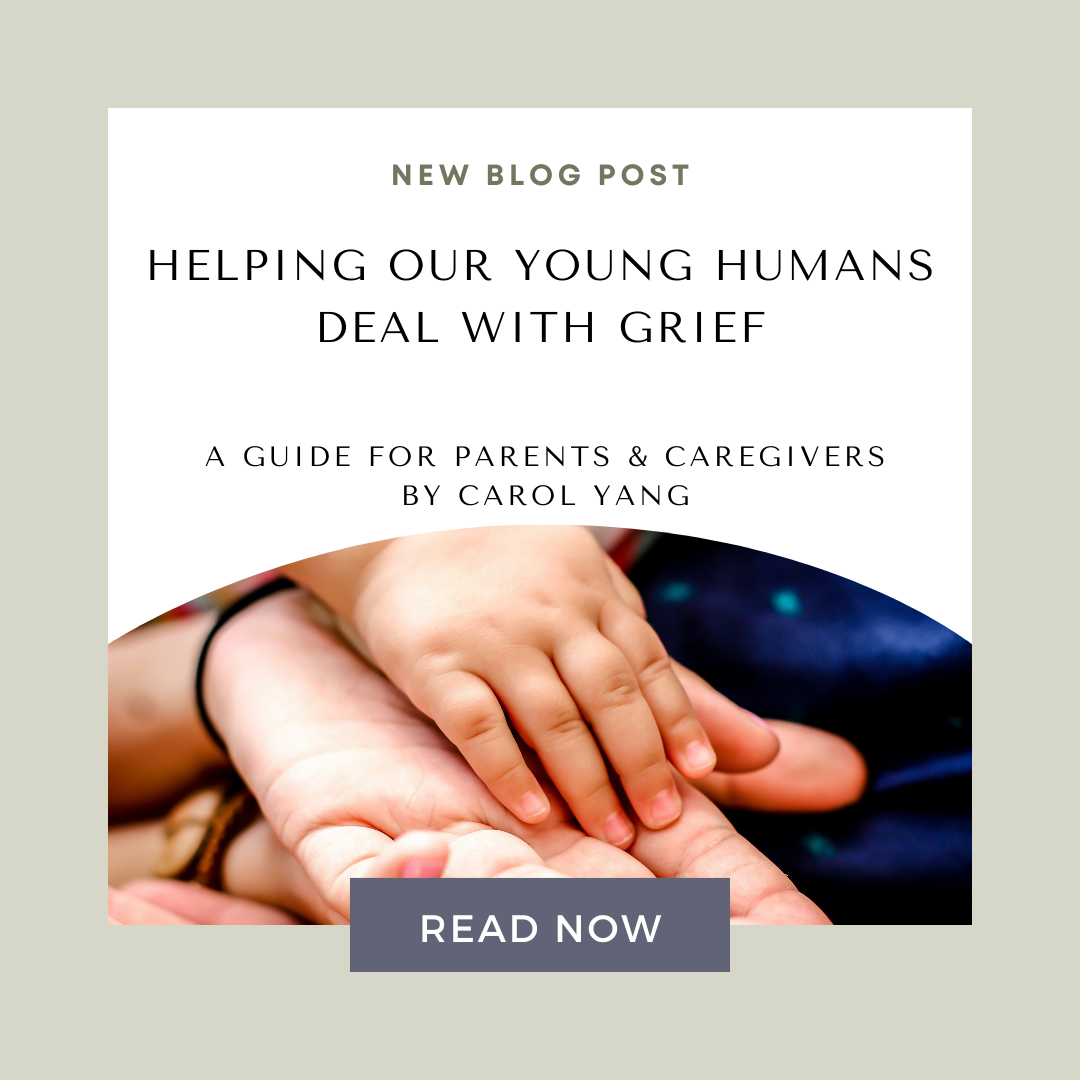Helping our young humans deal with death: A guide for parents & caregivers
Navigating loss and grief is a nightmare, even for the most prepared adult. Now, imagine a younger you dealing with it. Daunting, isn’t it?
Having faced loss and grief throughout my life, from my early years to recent times as a 30-year-old, I can confidently say it doesn’t get any easier.
This brings me to the present moment, where I sit down, coffee in hand, dog on lap, to share some tips I’ve picked up along the way, coupled with my professional knowledge and experience. These could be invaluable during such a dark and daunting inevitable time.
Understanding Young Minds and Death
Most young children are aware of death, even if they don’t fully understand it. Death is often portrayed in cartoons and films with a loud *BANG* or *BOOM*, followed by a haze of smoke and, as it clears, the character simply vanishes! Some of your child’s friends may have already lost a loved one. But experiencing grief firsthand is a different and often confusing process for children. As a parent or caregiver, you can’t protect a child from the pain and devastation of loss, but you can help them feel safe when it happens.
Children’s Response to Grief
After losing a loved one, a child may go from crying one minute to playing the next. Their changeable moods do not mean that they aren’t sad or that they’ve finished grieving; children cope quite differently from adults, and playing can be a defence mechanism to prevent a child from becoming overwhelmed—play is a magical way of processing and healing too. It is also very normal and appropriate to feel depressed, guilty, anxious, or angry at the person who has died or at someone else entirely. Death can seem a very illogical thing to our young humans. Very young children may even regress and start wetting the bed again or slip back into baby talk.
Key Strategies to Help Children Deal with Grief
Encourage Open Communication. Create a safe space for children to talk about their feelings. Encourage them to express their emotions freely, without judgement or fear of being misunderstood. Let them know that it is okay to feel sad, angry, or confused, and reassure them that their feelings are valid.
Don’t Ignore Your Own Grief: Children will often imitate the grieving behaviour of their parents, so it is important to show your emotions too! This helps reassure children that feeling sad or upset is okay and safe.
Encourage Creative Expression: Provide outlets for children to express their feelings through various creative activities, such as drawing, writing, or engaging in imaginative play. Artistic expression can serve as a powerful tool for processing emotions and can provide a healthy way for children to release their feelings.
Be Direct: When discussing death, avoid using euphemisms. Children are extremely literal, and hearing that a loved one “went to sleep” or “went on a holiday forever” can be frightening and feel unsafe. Besides making your child afraid of bedtime or vacations, euphemisms interfere with their opportunity to develop healthy coping skills, awareness, and understanding that they will need in the future.
Attending the Funeral or Not: Whether or not to attend the funeral is a personal decision that depends entirely on the parents/caregivers and your child. Funerals can be incredibly helpful in providing closure, but some children simply aren’t ready for such an intense and overwhelming experience. Never force a child to attend a funeral! If your child wants to go, it is important that you prepare them for what they will see. Explain that funerals are very sad occasions, and some people will probably be crying. If there will be a casket (open or closed—especially when open though), you should prepare them for that, too. Making use of media—films, cartoons, books etc. to aid in these discussions.
Maintain Routines and Stability: Continue with the regular routines as much as possible to provide a sense of stability and predictability during a time which is quite the opposite. Consistency can help children feel safe and secure during a time of upheaval. Ensure that they continue with their usual activities, such as school, hobbies, and social interactions, as this can provide a sense of normalcy and routine.
Age-appropriate Explanations: Tailor your explanations about death, loss, and grief to the child's age and level of understanding. Be honest, but use simple and gentle language to help them comprehend the situation. Answer their questions patiently and be prepared to repeat explanations as they may need time to fully grasp the concept of loss of a loved one.
Create a Supportive Community: Encourage your child to spend time with friends and family members who can offer comfort and support. People who they already have a connection with and whom they already feel safe with. Engage in activities that promote a sense of togetherness and encourage positive social interactions—a games night is always a winner for both young and mature! Knowing that they are not alone and have a support system can alleviate feelings of isolation and sadness.
Seek Professional Support: Consider seeking professional support from counsellors or therapists specialising in grief counselling or play therapy for children. These experts and professionals can provide tailored guidance, support, and ways of processing to help children work through their emotions and develop effective coping strategies.
Remember that everyone experiences and processes grief differently, and there is no one-size-fits-all approach. By offering consistent support, understanding, and patience, parents and caregivers can help children navigate the challenging journey of loss and grief and emerge with a stronger sense of resilience and emotional well-being—essential tools for life as big humans.

